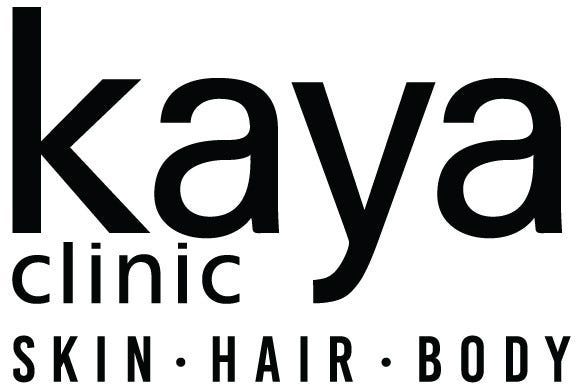Benefits of Hyaluronic Acid for Skin: Hydration & Glow

Introduction
When it comes to skincare, few ingredients have earned the universal praise that hyaluronic acid (HA) enjoys. Known as a hydration powerhouse, this naturally occurring molecule in our skin is celebrated for its ability to hold up to 1,000 times its weight in water. But what does hyaluronic acid do for the skin? At its core, hyaluronic acid replenishes and locks in moisture, making it an essential ingredient for anyone seeking hydrated, glowing, and youthful skin.
The hyaluronic acid benefits for skin go far beyond just hydration. From smoothing fine lines and improving elasticity to calming sensitive skin, HA is a multitasking marvel that works for all skin types. Whether your skin is dry, oily, sensitive, or combination, incorporating hyaluronic acid into your skincare routine can help you achieve a radiant complexion.
In this blog, we’ll guide you through everything you need to know about hyaluronic acid, from its standout benefits to practical tips on how to use it for the best results. By the end, you’ll understand why this ingredient is considered a must-have in every skincare regimen and how it can transform your skin health effortlessly. Let’s dive in!
What is Hyaluronic Acid?
Hyaluronic acid is a naturally occurring molecule in our bodies that plays a vital role in maintaining skin hydration and elasticity. Known as a "moisture magnet," hyaluronic acid can hold up to 1,000 times its weight in water, making it an incredibly effective natural skin hydrator. This means that even in small amounts, it works tirelessly to attract and retain moisture in the skin, keeping it hydrated, plump, and healthy-looking.
So, how hyaluronic acid hydrates and plumps skin lies in its unique ability to act like a sponge, drawing water into the skin’s surface layers. This boosts hydration, smoothens fine lines, and enhances skin elasticity, leaving your complexion looking fresh and rejuvenated.
As we age, our natural levels of hyaluronic acid decrease, leading to dryness, fine lines, and a loss of firmness. This is why topical applications, such as serums and creams infused with hyaluronic acid, are a game-changer in modern skincare routines. Whether you're battling dry skin or seeking a youthful glow, hyaluronic acid provides the deep hydration and plumping effect that your skin craves.
Top Benefits of Hyaluronic Acid for Skin
1. Hydration Hero
One of the most well-known benefits of hyaluronic acid for dry skin is its ability to provide intense hydration. By drawing water into the skin’s outer layers and locking it in, hyaluronic acid keeps your skin deeply moisturized and supple. This hydration not only alleviates dryness but also creates a smooth canvas, making your skin look healthier and more radiant.
2. Anti-Aging Support
As we age, the skin’s natural ability to retain moisture diminishes, leading to the formation of fine lines and wrinkles. Incorporating hyaluronic acid for fine lines and wrinkles into your skincare routine helps plump up these areas, reducing their appearance over time. Among the top benefits of hyaluronic acid for youthful skin is its ability to restore elasticity and firmness, giving your skin a rejuvenated and youthful glow.
3. Barrier Repair
A healthy skin barrier is essential for protecting against environmental damage and preventing water loss. How hyaluronic acid repairs damaged skin barrier is by strengthening this natural defense, allowing your skin to retain moisture and shield itself from irritants and pollutants. This makes hyaluronic acid an essential ingredient for maintaining long-term skin health.
4. Texture Transformation
If you’re struggling with rough or uneven skin, hyaluronic acid is here to help. How hyaluronic acid serums improve skin texture is by delivering hydration to every layer of your skin, which smooths out dry patches and promotes an even, soft complexion. Regular use of hyaluronic acid serums can leave your skin feeling silky and looking more refined.
5. Calm for Sensitive Skin
Sensitive skin often reacts to environmental stressors with redness and irritation. The soothing properties of hyaluronic acid make it ideal for calming these issues. Hyaluronic acid for sensitive skin: Benefits and tips include its gentle, non-irritating formula that provides hydration without clogging pores or triggering flare-ups, making it a go-to solution for delicate skin types.
These benefits highlight why hyaluronic acid is such a sought-after ingredient in skincare. From tackling dryness and fine lines to repairing the skin barrier and improving texture, it’s a versatile ally for achieving and maintaining a healthy, glowing complexion.
Comparing Hyaluronic Acid with Other Ingredients
1. Hyaluronic Acid vs. Retinol: Complementary Benefits for Skin Health
When comparing hyaluronic acid vs retinol: Benefits for skin health, it’s important to note that these two ingredients serve different but complementary purposes. Retinol is a powerhouse for cell turnover and collagen production, effectively reducing the appearance of wrinkles, fine lines, and hyperpigmentation. However, retinol can sometimes cause dryness and irritation, especially for sensitive skin.
This is where hyaluronic acid steps in. Its primary role is to hydrate and soothe, counteracting any potential dryness caused by retinol. When used together, hyaluronic acid enhances retinol’s effects by maintaining the skin’s moisture levels, ensuring smoother, healthier skin without irritation. The combination of these two ingredients creates a balanced routine for anti-aging and hydration.
2. Hyaluronic Acid vs. Other Hydrating Ingredients: Why It Stands Out
When it comes to hydration, how does hyaluronic acid compare to other popular ingredients? Let’s break it down:
-
Glycerin: While glycerin is another excellent humectant, it primarily works on the skin's surface to draw in moisture. Hyaluronic acid, on the other hand, penetrates deeper into the skin, providing more comprehensive hydration.
-
Squalane: Squalane is great for locking in moisture but lacks the water-attracting properties of hyaluronic acid. Combining the two can create an optimal hydration routine.
-
Aloe Vera: Aloe soothes and hydrates but is less effective in retaining moisture over time.
What makes hyaluronic acid unique is its ability to attract and hold up to 1,000 times its weight in water, making it far superior for long-lasting hydration. This distinction solidifies its position as a leader in hydration when comparing hyaluronic acid vs other hydrating ingredients.
How to Use Hyaluronic Acid for Best Skin Results
1. Best Practices for Application
Understanding how to use hyaluronic acid for best skin results starts with choosing the right products. Hyaluronic acid is commonly available in serums, moisturizers, and even sheet masks. Serums are the most effective form since they deliver a concentrated dose of hydration directly to the skin.
-
Step 1: Apply hyaluronic acid serum to slightly damp skin after cleansing. This helps it draw in more moisture.
-
Step 2: Follow up with a moisturizer to lock in hydration.
-
Step 3: Use a hyaluronic acid-infused mask 1–2 times a week for an added hydration boost.
Pro Tip: Always apply hyaluronic acid in a humid environment or spritz your face with water before application to enhance its hydrating power.
2. How to Layer It with Other Skincare Products
Hyaluronic acid pairs beautifully with many active ingredients, making it a versatile addition to any routine:
-
With Vitamin C: Apply Vitamin C serum first to brighten the skin, then follow with hyaluronic acid to lock in hydration.
-
With Retinol: Use hyaluronic acid after applying retinol to counteract any dryness or irritation, creating a balanced and soothing routine.
Avoid layering hyaluronic acid with heavy oils as they can block absorption, reducing its effectiveness.
3. Recommended Usage for Oily, Sensitive, and Acne-Prone Skin
-
For Oily Skin Types: Hyaluronic acid is lightweight and non-greasy, making it ideal for hydration without clogging pores. Hyaluronic acid skincare for oily skin types works best in gel-based formulations or water-based serums.
-
For Sensitive Skin: Its gentle, soothing properties make hyaluronic acid perfect for calming redness and irritation. Always choose fragrance-free and hypoallergenic products.
-
For Acne-Prone Skin: Look for the best hyaluronic acid products for acne-prone skin, which are non-comedogenic and paired with acne-fighting ingredients like salicylic acid. This combination hydrates without exacerbating breakouts.
By incorporating hyaluronic acid into your daily routine and following these tips, you can achieve deeply hydrated, plump, and radiant skin—regardless of your skin type.
Who Benefits Most from Hyaluronic Acid?
1. Dry Skin Types: Instant Hydration and Plumping
For those struggling with dry, flaky skin, the benefits of hyaluronic acid for dry skin are transformative. Its ability to attract and retain moisture ensures that the skin stays hydrated throughout the day. By penetrating deeply into the skin layers, hyaluronic acid not only replenishes lost hydration but also creates a plumping effect, making the skin look smooth and supple. Regular use helps prevent tightness and dryness, leaving your skin feeling soft and refreshed.
2. Mature Skin: Anti-Aging Properties for a Youthful Glow
As we age, the skin naturally loses moisture and elasticity, leading to the appearance of fine lines and wrinkles. Hyaluronic acid for anti-aging skincare routines offers a powerful solution. By hydrating the skin at a deeper level, it plumps up wrinkles and restores the skin’s firmness. Its anti-aging benefits also include improved elasticity, giving the face a more youthful and radiant glow. Whether used in serums, creams, or facial treatments, hyaluronic acid is a must-have for combating the visible signs of aging.
3. Sensitive Skin: Gentle Hydration Without Irritation
Sensitive skin requires a careful approach, and hyaluronic acid for sensitive skin: Benefits and tips make it a standout choice. Its non-irritating and lightweight properties make it perfect for soothing redness and irritation. Unlike harsher ingredients, hyaluronic acid provides gentle hydration that doesn’t clog pores or trigger allergic reactions. Look for fragrance-free and hypoallergenic formulations to ensure optimal results for delicate skin.
Choosing the Best Hyaluronic Acid Products
1. Serums for Glowing Skin
When it comes to achieving radiant and well-hydrated skin, serums are a top choice. The best hyaluronic acid serums for glowing skin are designed to deliver concentrated hydration directly to your skin, ensuring a luminous complexion. Look for products that combine hyaluronic acid with complementary ingredients like Vitamin C for brightening or niacinamide for improved skin texture.
Some highly recommended hyaluronic acid serums include:
-
Pure HA Serums: Ideal for all skin types, offering maximum hydration without clogging pores.
-
Multi-Weight HA Serums: These use hyaluronic acid molecules of different sizes to hydrate every layer of your skin.
-
HA Serums with Antioxidants: Perfect for protecting your skin from environmental stressors while providing a radiant glow.
Pro Tip: Apply these serums on slightly damp skin to boost absorption and enhance hydration.
2. Daily Skincare Favorites
For those looking for consistent hydration throughout the day, versatile products deliver the daily benefits of hyaluronic acid for glowing skin. These include moisturizers, face mists, and sheet masks infused with HA.
Key options to consider:
-
Hyaluronic Acid Moisturizers: Perfect for sealing in hydration after applying a serum, these are lightweight yet nourishing.
-
HA-Infused Face Mists: Great for a midday refresh, helping to maintain your skin’s hydration levels throughout the day.
-
Sheet Masks with HA: Ideal for a quick hydration boost, leaving your skin plump and glowing after just 10–15 minutes.
Using these products daily ensures that your skin remains moisturized, smooth, and glowing, making hyaluronic acid an indispensable part of any skincare routine.
By choosing the best hyaluronic acid serums for glowing skin and incorporating them into your routine with other HA-based products, you can enjoy the transformative effects of this superstar ingredient every day.
Conclusion
Hyaluronic acid is truly a game-changer when it comes to achieving healthy, radiant skin. Its unmatched ability to lock in moisture makes it an essential ingredient for anyone looking to improve hyaluronic acid for skin hydration and elasticity. From smoothing fine lines and enhancing skin texture to strengthening the skin barrier, hyaluronic acid addresses multiple skincare needs, regardless of your skin type.
So, why use hyaluronic acid in your skincare regimen? The answer is simple: it’s a versatile, lightweight, and highly effective solution for achieving glowing, youthful skin. Whether you’re combating dryness, preventing the signs of aging, or soothing sensitive skin, incorporating hyaluronic acid into your daily routine can transform your complexion for the better.
Start today by adding a high-quality hyaluronic acid serum or moisturizer to your skincare lineup, and experience the incredible benefits for yourself. Your skin will thank you!
FAQs
What does hyaluronic acid do for the skin?
Hyaluronic acid is a natural molecule that acts as a powerful hydrator. It draws moisture from the environment and locks it into your skin, keeping it deeply hydrated and plump. This improves skin elasticity, smoothens fine lines, and creates a glowing, healthy complexion. It’s suitable for all skin types, making it a versatile addition to any skincare routine. Whether you struggle with dryness, dullness, or aging, hyaluronic acid can help restore and maintain optimal skin health.
How often should I use hyaluronic acid?
You can safely use hyaluronic acid twice a day, in the morning and evening. Apply it after cleansing and before moisturizing. Serums with hyaluronic acid work best on slightly damp skin, so spritz your face with water before application. Consistency is key to seeing results, so make it a part of your daily routine for long-term hydration and skin health.
Can hyaluronic acid be used on sensitive skin?
Yes! Hyaluronic acid is gentle, lightweight, and non-irritating, making it ideal for sensitive skin. It soothes redness, reduces irritation, and provides deep hydration without clogging pores. To ensure safety, opt for fragrance-free and hypoallergenic products. Patch-test new products before applying them all over your face to avoid unexpected reactions.
Does hyaluronic acid work for oily skin?
Absolutely. Hyaluronic acid is non-comedogenic, meaning it won’t clog pores, making it a great hydrator for oily skin types. It delivers moisture without adding greasiness, balancing oil production. Look for water-based or gel formulations for lightweight hydration that keeps oily skin fresh and healthy.
Can I use hyaluronic acid with retinol?
Yes, hyaluronic acid and retinol complement each other perfectly. Retinol can cause dryness and irritation, and hyaluronic acid helps counteract these effects by delivering hydration and soothing the skin. Use retinol first, allow it to absorb, and then apply hyaluronic acid to lock in moisture.
Is hyaluronic acid safe for everyday use?
Yes, hyaluronic acid is safe for daily use. Its gentle nature allows it to hydrate the skin without causing irritation or buildup. In fact, regular use improves skin hydration, elasticity, and overall texture over time. Make sure to follow it with a moisturizer to seal in hydration effectively.
How long does it take to see results from hyaluronic acid?
You’ll notice instant hydration and plumpness after the first application. For long-term benefits like improved skin texture and reduced fine lines, consistent use for 4–6 weeks is recommended. Make it a staple in your skincare routine for lasting results.
Can hyaluronic acid make my skin look younger?
Yes! Hyaluronic acid minimizes fine lines and wrinkles by hydrating and plumping the skin, restoring its elasticity. This creates a smoother, more youthful complexion. While it doesn’t replace collagen production, it’s a powerful ally for achieving a younger-looking glow.
Does hyaluronic acid help with acne-prone skin?
Yes, hyaluronic acid is beneficial for acne-prone skin. It hydrates without clogging pores and reduces the dryness caused by acne treatments like salicylic acid or benzoyl peroxide. Use non-comedogenic products that pair hyaluronic acid with anti-inflammatory ingredients for the best results.
What are the best products with hyaluronic acid?
The best products include serums for targeted hydration, lightweight moisturizers for sealing in moisture, and sheet masks for a quick hydration boost. Look for formulations with multi-weight hyaluronic acid molecules to hydrate all layers of the skin. Choose trusted brands for quality results.
Can I use hyaluronic acid around my eyes?
Yes, hyaluronic acid is safe for the delicate under-eye area. Many eye creams and serums include it to reduce puffiness, fine lines, and dryness. Use your ring finger to gently tap the product around the eye area for best results.
Does hyaluronic acid help with hyperpigmentation?
While hyaluronic acid doesn’t directly lighten dark spots, it enhances hydration and improves skin texture, allowing other brightening ingredients like Vitamin C or niacinamide to work more effectively. Combine hyaluronic acid with targeted treatments for hyperpigmentation for the best outcome.
How do I apply hyaluronic acid for maximum hydration?
To maximize hydration, apply hyaluronic acid on damp skin after cleansing. This helps it attract moisture effectively. Follow with a moisturizer to seal in the hydration. Use it morning and night for optimal results.
Is there a specific age to start using hyaluronic acid?
There’s no specific age to start using hyaluronic acid. It’s suitable for anyone looking to maintain hydration and skin health. Teens can use it for hydration, while older individuals benefit from its anti-aging properties. Start as early as your 20s to maintain elasticity and prevent dryness.
Does hyaluronic acid work well with makeup?
Yes, hyaluronic acid preps the skin perfectly for makeup by creating a hydrated, smooth base. Use it as part of your skincare routine to prevent cakiness or dryness. Apply it as a serum or moisturizer before your primer for long-lasting, flawless makeup.





